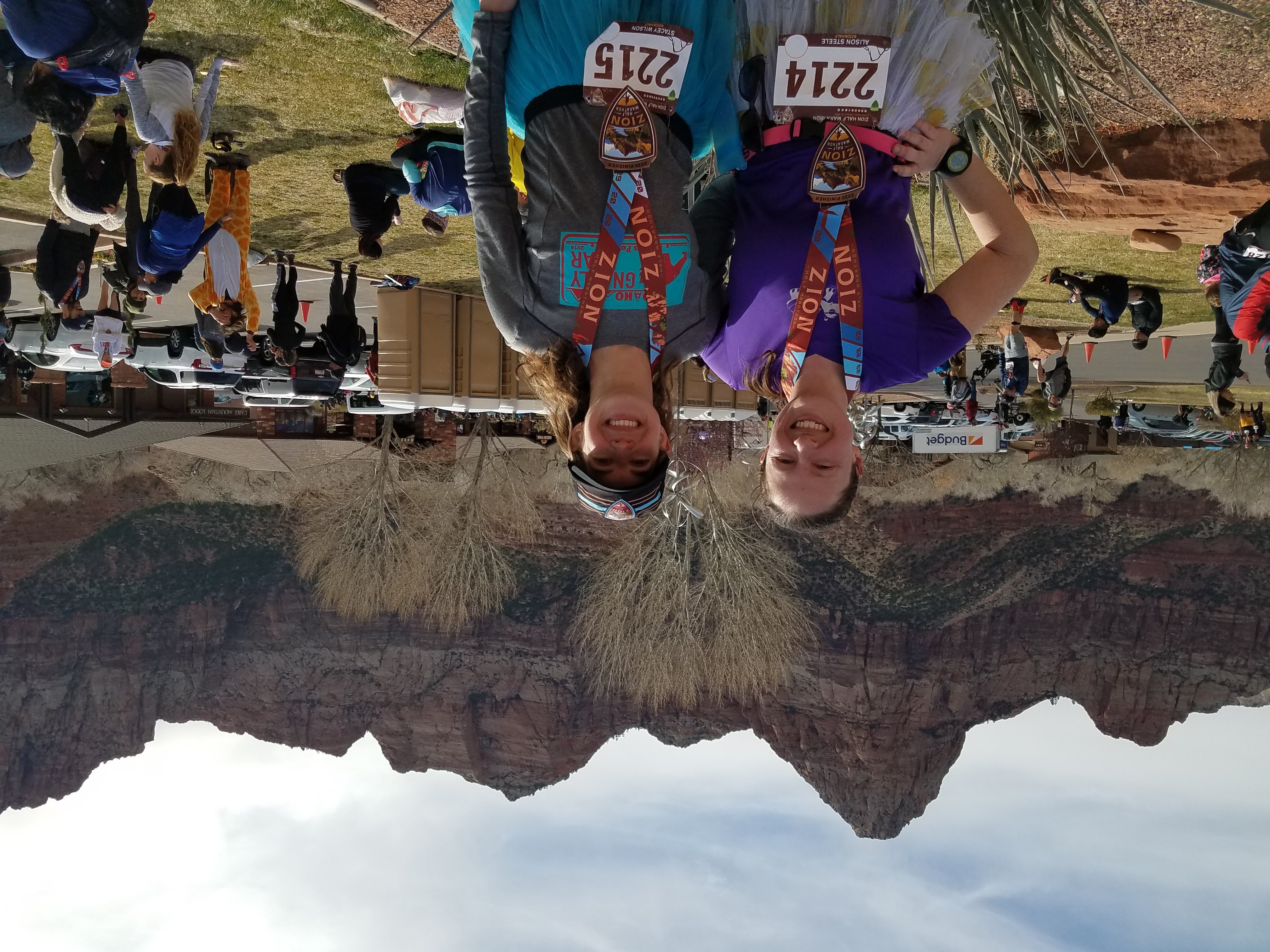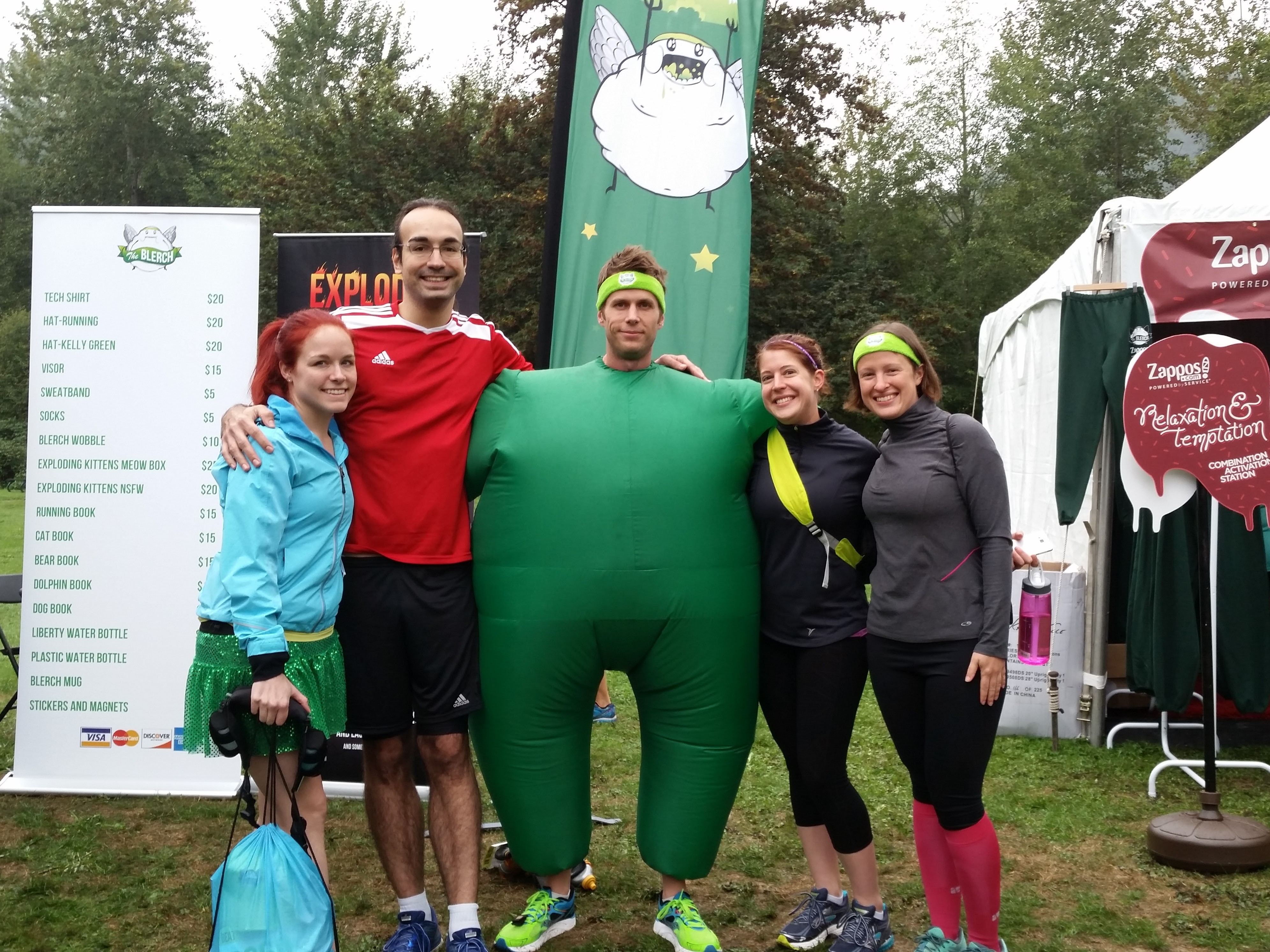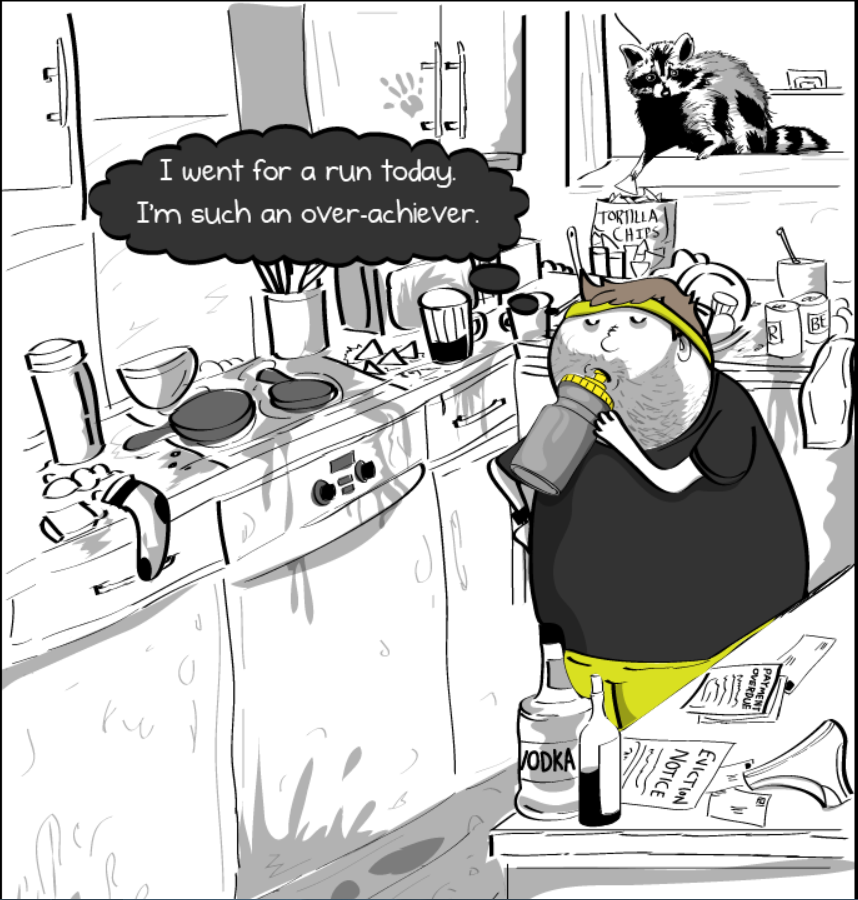Finding Balance
In Japan, students and salarymen alike have not one, but two parties at this time of year: a “bonenkai” in December to “forget the year”[1] and a “shinnenkai” in January to open the new year.[2] If there was ever a year to put ceremoniously behind us, 2020 is certainly it, but I do think I learned a lot in that time, and I don’t want to forget those lessons. In a true bonenkai / shinnenkai sense, the first part of this post went live in December and looked at some of the standout lessons of 2020. This second part, my first post of 2021, will be forward-looking to the next year and how I can work toward incorporating those lessons.
The Next Twelve Months
In last week’s post, I looked back over 2020 and examined my habits around responding to short-term challenges and long-term goals. Several years ago when I had my first management job out of grad school, I read a book called A First-Rate Madness, by S. Nassir Ghaemi about revolutionary leaders who also had mental illnesses.[3] Ghaemi contrasted some of these big names (such as Lincoln, Kennedy, King, and Churchill) with leaders who were mentally stable but really only performed well in times of stability.

Image credit: [4]
Keeping any comments about my own mental state or fitness to lead out of this post, I did find it an interesting theory that there are different skills that serve leaders in times of stability or crisis. It was also not lost on me that I tend to be more productive and engaged in times when I am challenged. The cycle of frenzy and recovery through discrete challenges may have been reinforced by formal classroom environments, but I realize that isn’t how the real world works. Many issues are ongoing, always requiring my attention, and I will either need to pace myself accordingly or accept that I am heading toward burnout.
I recognize that I could always be doing more, but as we’ve already established, I tend toward the frantic sprint-like nature solving of short-term problems, not the stable, consistent marathon of long-term leadership. I know how much needs to be done, and for that reason, I often rationalize working harder, longer hours. But sometimes I worry that by just reading one more email, making one more phone call, I am nickel-and-diming my own personal life and rest time. Burnout is a serious concern in nonprofit fields, especially for leadership,[5] but if I hold myself back to a marathon pace, I feel guilty for it.
My last boss insisted that her employees maintain a realistic work/life balance. We laughed about my recipe for success in that department: I worked hard, and I played hard. The only reason I left work in the evenings was not because my work was done but because I had non-work obligations, such as a choir rehearsal, or a book club meeting, or a meetup to train for a race. In reality, my hobbies have never represented down-time, but a series of obligations related to my interests… and by staying busy outside of work, that successfully prevented me from putting in too much time at work. But I have never been successful at protecting chunks of unstructured down-time or rest time for myself.

The only time I do any pleasure reading, reflecting, and writing is in the form of working on this blog, an incredibly structured “hobby” where I’ve given myself an arbitrary weekly deadline to spit out some pearls of wisdom (sometimes I’m well ahead of schedule, and sometimes I cut it pretty close). In order to eat healthily, I apparently need the pressure (and guilt) of a CSA subscription to force me to cook and eat fresh produce rather than order Chipotle delivery, yet again. I am terrible about exercising unless I’m preparing for a full marathon (not even a half marathon anymore), and even then I’m pretty bad about sticking to my training plan – yes, I realize that is not healthy or safe. In short, I have known for years that I love making plans, but not actually carrying them out.
SMART Resolutions
According to Forbes, I’m not alone. Only about 8% of people who make resolutions actually manage to keep them.[6] I recently went through the exercise of creating SMART Goals (Specific, Measurable, Attainable, Relevant, Time-bound)[7] with all of my team members for the coming year at work. It got me thinking about my own New Year’s resolutions and whether they’re realistic for me. Granted, I typically have a long list, and it can be hard to keep up with all of them. Every year around this time I encounter the same hilariously accurate list of ideal resolutions by Myers-Briggs personality type,[8] and this is mine:
What resolution are you likely to hear from the ENFP personalities this year?
“I resolve to make fewer than 15 New Year’s resolutions and to keep at least 2 of them.”[9]
Usually my slew of resolutions includes items that are, small, perfectly achievable, and related to some kind of self care (e.g. floss every day, take a multivitamin every day, work out three times a week, go vegan three days a week, etc.) I keep them small so they’ll be easy to incorporate into my daily routine, but in their complete achievability, I can’t even be bothered to try. (I know I could if I wanted to… I just don’t want to.) These simple changes lack any long-term goal or reason for why other than the idea that they are all things I should be doing for my general health and wellbeing. Unfortunately, because of their intangible benefit, they rarely last more than a couple weeks.

I think part of my problem with keeping New Year’s resolutions is that while I understand the “why” – it is often a nebulous benefit at the end, there is no visible end in sight. While my resolutions are all specific, measurable, attainable, and relevant, they’re also all ongoing, which means there is never a time-bound element that gives me a “finish line” moment with the dopamine rush of accomplishment. Inspired by a friend who recently reached her 2020 goal of running 1000 miles, I began considering the idea of setting a time-bound goal as a resolution – something I could work toward all year and by the end of December say yes I did it or no I didn’t.
I love running, but it is no secret that I don’t get out and do it unless I’m training for a race (and sometimes not even then). I ran a half marathon with one of my best friends on Leap Day in 2020, before everything shut down. The Pittsburgh Marathon in May was canceled; the Mount Desert Island Marathon in October was canceled. I didn’t even get out and run when a half marathon I do every August went virtual.
I’ve written several posts in recent months touching on chronic stress and its effect on the body,[10],[11] and we know that physical activity helps the body process stress. However, in the most collectively stressful year in a generation, when running was the best possible thing I could be doing for myself, my total mileage was 20.3.

Image credit: [12]
2021 Resolution(s)
I know that running is beneficial for my body, but it is even moreso for my mind. It is meditative time when I don’t think about anything in particular and just let thoughts pass through my head like clouds across the sky, as Haruki Murakami describes in his book What I Talk About When I Talk About Running.[13] Matt Inman of the internet comic The Oatmeal also talks about seeking the void when he runs, shutting out the noise of the world and his own personal demons.[14]
Between the ongoing stressors of 2020 (COVID-19, racial tensions, economic crises, and elections), the responsibilities of having the top job at an organization that does vitally important public health work, the goal of achieving some semblance of work/life balance, and the very real need to build habits around working steadily toward long-term goals, it strikes me that there may be no better 2021 resolution for me than a mileage goal for the year. Running 500 miles in 2021 seems manageable enough at 10 miles a week, but challenging enough that I won’t blow it off. (I have averaged around 200 miles per year since I started doing long distance races but only broke 500 the year I ran my first two marathons.) It is something I can break into chunks and accomplish with 2-3 short runs a week, but it isn’t something I can put off until fall and then try to cram in before the year is over.
I’m curious to see how this resolution plays out, particularly since we still have no visibility into when there will be in-person marathons again. Given that I’ll just be running and not training for a race, I won’t have a finish line and a medal for all my hard work, but I might have a little bit more stability in my daily life.
~
What are your New Year’s resolutions this year? What tricks have you used to ensure success in the past?
Thanks for reading – and Happy New Year!
[1] https://en.wikipedia.org/wiki/B%C5%8Dnenkai
[2] https://en.wikipedia.org/wiki/Shinnenkai
[3] https://www.goodreads.com/book/show/10357675-a-first-rate-madness
[4] https://imgur.com/gallery/XxsRXf8
[5] https://donorbox.org/nonprofit-blog/nonprofit-burnout/
[6] https://www.forbes.com/sites/ashiraprossack1/2018/12/31/goals-not-resolutions/?sh=7dcce9c43879
[7] https://www.mindtools.com/pages/article/smart-goals.htm
[8] https://www.myersbriggs.org/my-mbti-personality-type/mbti-basics/the-16-mbti-types.htm
[9] https://www.mbtionline.com/en-US/Articles/2017/December/The-Best-New-Years-Resolutions-for-Each-Myers-Briggs-Type
[10] https://radicalmoderate.online/dont-fear-the-reaper-processing-tragedy-through-art/
[11] https://radicalmoderate.online/dungeons-dragons-as-group-therapy-part-2/
[12] https://theoatmeal.com/comics/running3
[13] https://www.goodreads.com/book/show/2195464.What_I_Talk_About_When_I_Talk_About_Running
[14] https://theoatmeal.com/comics/running
0 Comments